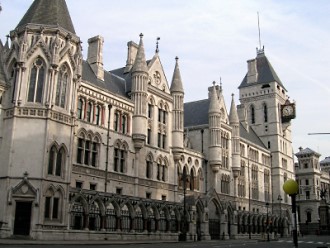Court to examine the agreement between UK and Zimbabwean governments for return of failed asylum seekers
The Independent reported yesterday that the Government is set to face a High Court legal challenge over the practice of inviting foreign government representatives to interview political asylum seekers.
 Image credit: WikipediaLast December, The Independent reported that at least seven Zimbabwean asylum seekers had been interviewed by Zimbabwean government representatives at a Home Office building in Sheffield.
Image credit: WikipediaLast December, The Independent reported that at least seven Zimbabwean asylum seekers had been interviewed by Zimbabwean government representatives at a Home Office building in Sheffield.
The Independent said that the interviews were believed to be part of an agreement between the governments of the UK and Zimbabwe, whereby at least 2,500 failed asylum seekers could be returned if Zimbabwean officials were able to first vet them in the UK to ensure they were Zimbabweans.
According to yesterday's article, the High Court has now granted permission for a legal challenge over the practice.
Rowan Pennington-Benton of 3 Hare Court is representing the claimant in the challenge.
Pennington-Benton told The Independent: "We need a proper explanation and therefore appreciation of the nature and scope of the agreement actually reached between the UK and the Zimbabwean governments.
"Certainly, there are a lot of failed asylum seekers from Zimbabwe whose cases were effectively believed in terms of being anti-government work that they were doing, but who have been told they can be returned because they will slip under the radar.
"Yet this is a policy that appears to put them above the radar, or slap bang in the middle of the radar."
In response, a Home Office spokesperson told The Independent that the interviews were merely routine re-documentation interviews.
The spokesperson was quoted as saying: "Re-documentation interviews are a standard part of Home Office process where an interview is required by the receiving country to confirm identity and in order for a travel document to be produced."